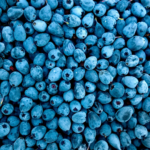It’s customary for people to start the year by focusing on their health. Few, however, address the health of the bacteria that live in the human gut — the microbiome — which are critical to a person’s overall health.
What role do these bacteria play?
Bacterial cells make up the same number of cells in our bodies as human cells, and they have a role in everything from inflammation to cancer formation and therapy, as well as how much energy we get from our food and potentially even what foods we crave and our moods.
These processes can be interrupted when our microbiome becomes unbalanced, which is frequently suggested when particular species or groups of bacteria become extremely prevalent, contributing to the development of disorders such as obesity, cancer, inflammatory bowel disease, and many others.
When we eat new meals, our gut microorganisms are also responsible for gas generation as they adjust to the new nutrient source in their surroundings. So it’s obvious that we want a healthy microbiome, but what exactly is that?
There’s a lot of disagreement about what constitutes a healthy gut microbiota community, but one thing is apparent. Humans require a diversified microbiome with a diverse range of bacterial species that can quickly adapt to the large range of foods we may choose to consume while still performing all of the critical activities such as inflammation prevention. So, what can you do to help your microbiome stay healthy and diverse?
Consume Fruits and Vegetables
While all of the foods in your diet can affect your gut microbiome, fiber — the carbohydrates in our diet that we can’t break down but that our gut bacteria can quickly consume — is what promotes the development of a healthy microbiome. Eating a varied and bountiful variety of fruits and vegetables is a terrific method to nourish some of our gut’s most health-promoting bacteria.
Incorporate Resistant Starch
The majority of the carbohydrate in our diet is quickly broken down and absorbed, such as white bread and spaghetti. However, a small percentage of that starch is resistant to digestion and works as a fiber, nourishing the microorganisms in our intestines. Resistant starch has been discovered as being very advantageous for supporting all of the gut microbiome’s healthy functions.
Potatoes and legumes are two examples of resistant starch sources. After cooking and cooling in the fridge, all sources of starch might become more resistant. So even cold or reheated leftover potatoes and pasta may have a microbiome-boosting boost.
Experiment with a variety of fibers.
Not all fibers are the same, and not all gut microbiomes are the same. Depending on the functionalities present, certain fibers and microbiomes will mix better than others. This means you’ll have to try a few different fibers to see which ones make you and your gut feel the best. Fiber supplements or different types of fiber sources, such as whole grains, lentils, or cruciferous vegetables like broccoli, can help with this. Allow your microbiota to acclimate to each fiber source for a couple of weeks to see how it reacts.
Exercise is beneficial to both you and your Microbiome.
Regular physical activity is beneficial not just to your heart but also to your gut. Recent research has found that part of the lactate created during exercise has an effect on specific gut microorganisms, while the exact mechanism is unknown. If you haven’t had regular physical activity in your life, take it slowly at first. If you begin on New Year’s Day, by Valentine’s Day, you could be walking or engaging in some other form of action on a regular basis, benefiting your heart, mind, and belly.
Consume foods that are high in probiotics.
What are probiotic foods, and how do you eat them? These are foods that contain health-promoting bacteria. There are a variety of beneficial bacteria that may be added to meals like yogurt or found naturally in fermented foods like sauerkraut or kimchi to boost their health-promoting properties. In the new year, try one of these foods. You may be wondering if probiotic supplements are as good as probiotic foods. There isn’t enough evidence to support this claim yet, so stay with food.










